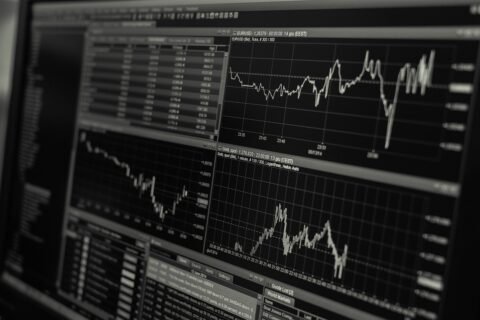Photo by Viktor Hesse on Unsplash
Introduction to Oil Trading Technology
Oil trading stands as one of the most critical components of the global economy, powering industries and fueling transportation networks. Traditionally, oil trading has been a complex and often opaque process, characterized by manual paperwork and lengthy settlement periods. However, the advent of technology has revolutionized this industry, bringing about significant advancements in efficiency, transparency, and risk management. Additionally, if you want to learn about investments, specifically those related to the oil sector, and companies that can teach them about this topic, you may visit Gas Pro Evex.
Blockchain and Oil Trading
Blockchain technology, renowned for its immutable and decentralized ledger system, has made significant inroads into the realm of oil trading. By leveraging blockchain, participants in the oil market can streamline trade settlement processes, enhance transparency, and mitigate the risk of fraud. Companies like VAKT and IBM are pioneering blockchain solutions tailored specifically for the energy trading sector, providing a secure and efficient platform for executing transactions.
Artificial Intelligence (AI) in Oil Trading
The integration of artificial intelligence (AI) into oil trading operations has enabled market participants to make data-driven decisions with unprecedented speed and accuracy. AI algorithms analyze vast amounts of historical data to identify market trends, forecast price movements, and optimize trading strategies. Hedge funds and energy trading firms employ AI-powered trading algorithms to execute trades autonomously, maximizing profits and minimizing risks in volatile market conditions.
Internet of Things (IoT) in Oil Trading
The Internet of Things (IoT) has emerged as a game-changer in the oil trading industry, facilitating real-time monitoring and control of critical infrastructure assets. IoT devices installed in oil refineries, storage tanks, and pipelines collect valuable data on temperature, pressure, and flow rates, enabling traders to make informed decisions based on the latest operational insights. Moreover, IoT-enabled predictive maintenance systems help prevent costly equipment failures and minimize downtime, ensuring uninterrupted supply chains.
Big Data and Analytics in Oil Trading
Big data analytics has become indispensable for oil traders seeking to gain a competitive edge in the market. Advanced analytics platforms process vast volumes of structured and unstructured data, including market news, weather forecasts, geopolitical events, and supply chain dynamics, to identify profitable trading opportunities and mitigate risks. By harnessing the power of big data, traders can optimize their trading strategies, improve market timing, and capitalize on emerging trends with precision.
Robotic Process Automation (RPA) in Oil Trading
Robotic process automation (RPA) has revolutionized back-office operations in the oil trading industry, automating repetitive tasks and streamlining workflows. RPA software bots perform routine tasks such as data entry, trade reconciliation, and regulatory reporting with unparalleled speed and accuracy, freeing up human resources to focus on higher-value activities. Leading energy trading firms leverage RPA solutions to enhance operational efficiency, reduce costs, and ensure compliance with regulatory requirements.
Cybersecurity in Oil Trading Technology
As oil trading operations become increasingly digitized, cybersecurity has emerged as a top priority for market participants. With sensitive trading data and critical infrastructure assets at stake, robust cybersecurity measures are essential to safeguard against cyber threats and unauthorized access. Companies invest in state-of-the-art cybersecurity technologies such as encryption, firewalls, and intrusion detection systems to protect their networks and systems from cyber-attacks. Moreover, employee training and awareness programs play a crucial role in promoting a cybersecurity-aware culture and mitigating the risk of human error.
Future Trends in Oil Trading Technology
Looking ahead, the future of oil trading technology promises to be shaped by emerging trends such as machine learning, quantum computing, and decentralized finance (DeFi). Machine learning algorithms will continue to evolve, enabling traders to extract actionable insights from increasingly complex datasets and refine their trading strategies in real time. Quantum computing holds the potential to revolutionize the field of risk management, allowing traders to perform complex calculations and simulations at speeds unimaginable with traditional computing architectures. Furthermore, decentralized finance platforms built on blockchain technology will democratize access to energy markets, empowering small-scale traders and reducing reliance on traditional financial intermediaries.
Conclusion
In conclusion, the latest innovations in oil trading technology are reshaping the landscape of the energy market, driving efficiencies, enhancing transparency, and mitigating risks. From blockchain and artificial intelligence to IoT and big data analytics, technological advancements are enabling oil traders to navigate volatile market conditions with confidence and capitalize on emerging opportunities. As we look towards the future, the continued integration of cutting-edge technologies will undoubtedly usher in a new era of efficiency and transparency in oil trading.

Daniel J. Morgan is the founder of Invidiata Magazine, a premier publication showcasing luxury living, arts, and culture. With a passion for excellence, Daniel has established the magazine as a beacon of sophistication and refinement, captivating discerning audiences worldwide.





